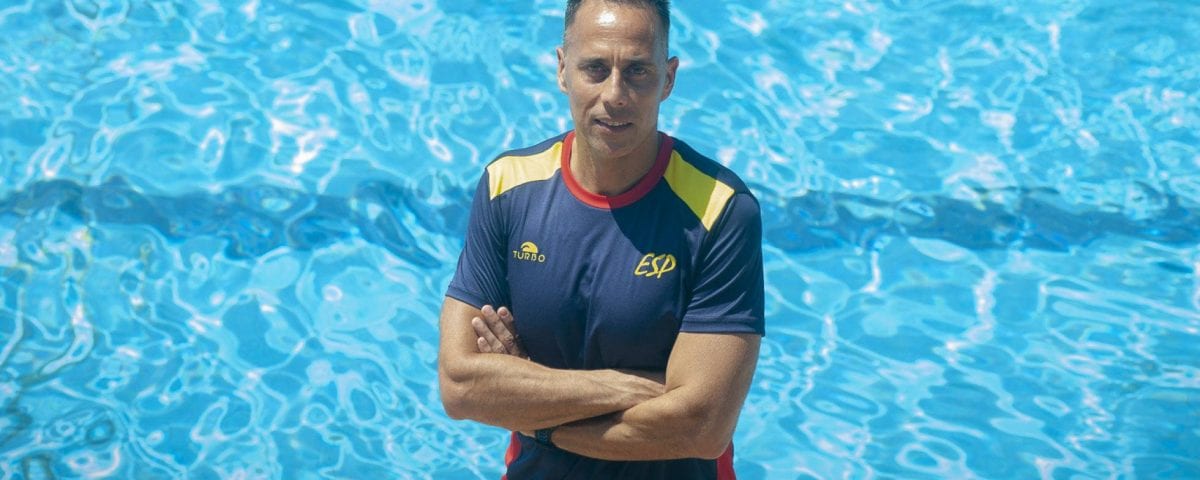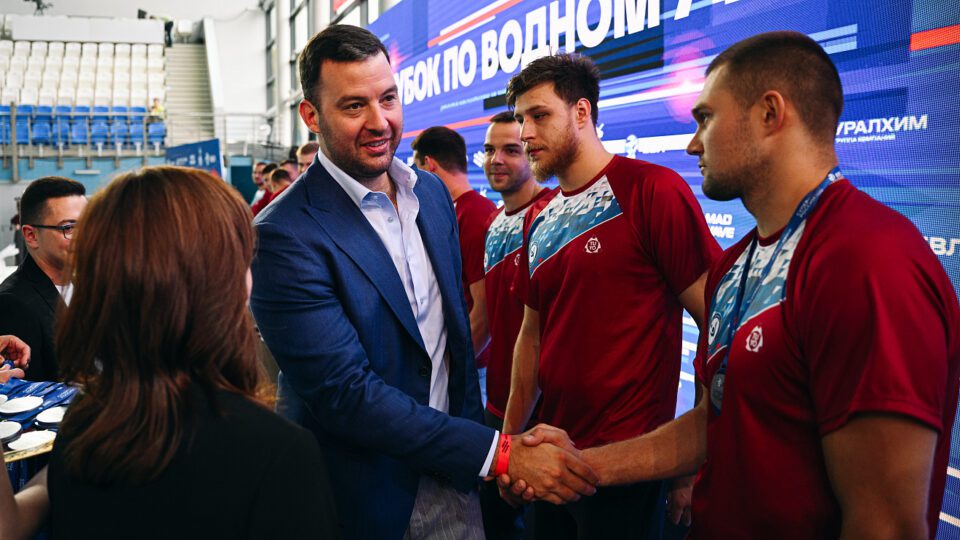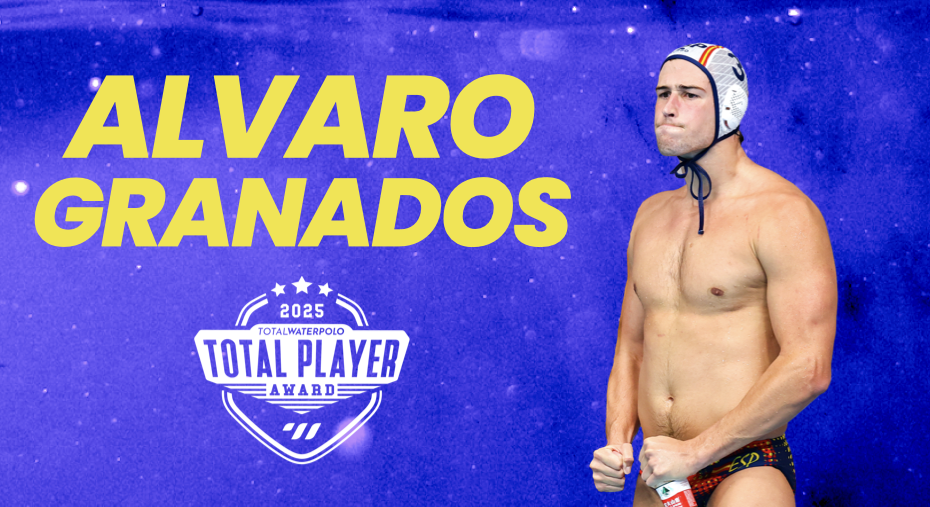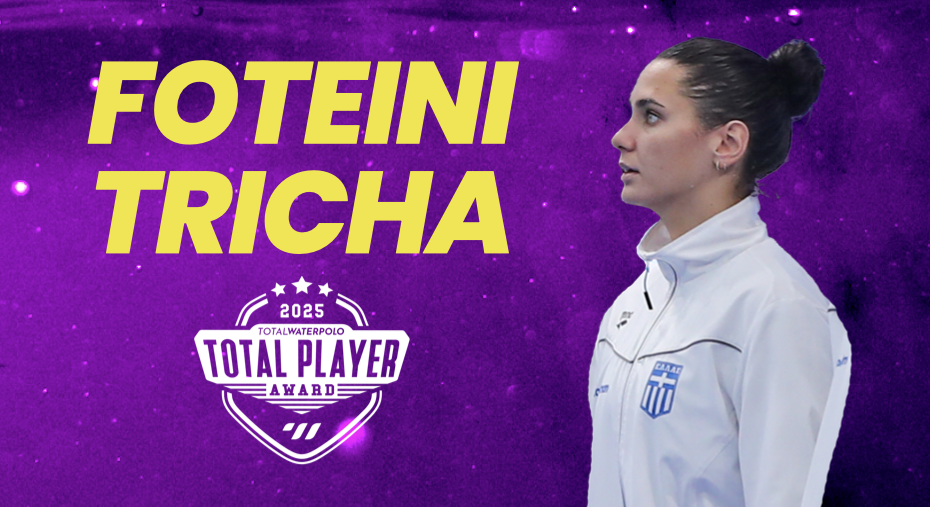El Pais brings the interview with the successful Spanish coach who analyzed the future of the team that has returned to the podium, hooked the fans and was about to beat the Serbian dream team.
In Martín family, water polo is both a business and pleasure. Many of the members formed exceptional associations in a number of Catalan clubs, combining recreational sports with high competition. David Martín (41 years old, Barcelona) leads the Spanish team.
As the head of the young and talented team, he brings the sport closer to its keen fans. He broke the Montenegrin defenses and beat the Greeks and Italians. In the end, he put a tough fight against the current champions, Serbia, to the limits of a penalty shootout.
The Spaniards won the silver in the European Championships. But more importantly, they made their rivals tremble. See what Martín had to say in the interview.
In short, was the final match a great success or a big disappointment?
Right after the game, we were very hurt. But it was a great match. We dominated for a great part of the match. And losing on penalties does not please anyone.
Our team played great on such a spectacular championship and gold would have been the crown. But as time passes… we athletes strive for one thing: to be competitive. And we know that whoever wants to win us, has to make a lot of sacrifices. Yes. I’m satisfied but hurt.
You have a track record with the finals and the penalty shootout. Can you tell us more about it?
We lost the finals of the World Cup in Rome in 2009. What’s more interesting, it also happened on penalties and against the same opponent. And with the junior team, with Tahull, Cabanas, and Bustos, we also lost the World Cup final against Hungary on penalties. In Melbourne though, in the 2007 World Cup, we won the bronze after beating Serbia in the penalty shootout. But the latest memories are not very good.
Were the players prepared for a penalty shootout?
From the first day, we were ending our training with shooting penalties. But sometimes it’s luck, and sometimes it isn’t, because the Serbs threw the balls in a spectacular way. It was a matter of centimeters.
The first thing that the Serbian coach, Dejan Savic, did after the final was to look for you and bow.
The relationships in the water polo community are very respectful and honest. Dejan is my friend and I know that Serbia values us very much. He congratulated me for the great game and told me to continue like this because he is convinced that this generation will succeed greatly.
But I’m the one who should have bowed. He merely appreciated that the final match was beautiful. It was well fought, played with a lot of fair play and respect among the players.
Is it an exaggeration to say that Serbia has a dream team?
It’s not. They have won the Games, the World Cup, and the last four Europeans. Water polo has been dominated by a series of generations: the Spanish in the nineties, the Hungarian after three Olympic titles. In 2009 came Serbia. They won everything. We see them as the beginning of another generation that can match what the Spaniards did back in the day.
Nowadays, in any sport, it is increasingly difficult to chain so many successes. It is practically impossible to match Estiarte, but we can always try to fight for the medals and be a competitive team. The most important thing is that Spanish water polo is now climbing to the top, where it will stay for years.
What are your final thoughts on this subject?
What I liked most is that we’re talking about water polo again. We have had a few years of pessimism in which it seemed that it was a sport that no longer gave joy.
But we have returned to the press, people are talking about us, enjoying the games. The pools are full, young children are once again dreaming of being water polo players and I think this is the legacy that will leave on after this generation. It’s not gold or silver that matter so much. Many people are used to seeing water polo as a small sport, but now they are starting to realize how competitive and likable it is.
The last 15 days were exceptional, we can all agree on that. But what happens next?
What we achieved is reaching the tip of the pyramid, succeeding in Spanish water polo in general. Behind that, there is the work the clubs do with their coaches. We have shown the world we have talented young people. Now, these players’ job is to use that opportunity to compete internationally.
If we do what I’m hoping we will, it will raise us to a new level. I’m not talking only about those who have been here, but also others from before like Bernat Sanahuja, Fran Valera, juniors with a lot of potentials. Also, there’s Agustí Pericas, another great example.
I am very satisfied with the effort the clubs are making. It is immense, they are fighting against all the possible inconveniences… CN Sabadell plays European competitions, Atlètic Barceloneta is great as it always was. This is what we have to keep on doing through the clubs’ federations and the sponsors. And if the national selection’s success popularizes water polo during winter, not only in summer, it will be one of the greatest sports around.
What about your goalkeeper, López Pinedo? He’s already 38 years old…
Without a doubt. What we have to do is what Dani says: go year by year. We must continue to fight on this level, but above all, we must think about the future. In the European Championships, our substitute has been Edu Lorrio, 24 years. We will have to give him a chance to shine in the international matches so he can mature, for the time will come for him to be a great goalkeeper.
We have a selection that cannot consist of only 13 players, it must be 20 or 25. We have plenty of young people eager to play and among them are the goalkeepers. Which are especially good in a 2001 and 2002 batch. Dani will not play forever, and we will find solutions.
In the end, during the decisive fifth penalty in the final, you replaced Lopez Pinedo with Lorrio.
Lorrio is a good goalkeeper, especially on penalties. He has a lot of intuition. During summer, when there was a penalty shootout, he always stood by Dani’s side. I said to him: ‘You be prepared, and if we see that they are shooting very well, you have to look for the surprise effect. I’ll tell you how to get into it’.
The Serbs pulled off an exceptional way of playing and we had trouble looking for the surprise effect. Because the shooters study the goalkeepers too. So I said: ‘well we put Lorrio to analyze them’. But Serbian play was spectacular, impossible to stop by both Edu and Dani.
What is your situation regarding the contracts?
I’m currently waiting for the Tokyo Games. I had a contract for two plus two years. I have to thank the federation for offering me the renewal already before the European Championships. That shows their confidence in the project, and not only in the result that could occur.
Therefore, I will get ready for Tokyo. I want to continue dreaming because now comes the most difficult part. Reaching the medals is hard, but it’s even harder to keep on going. We have a lot of work ahead of us. That’s most important along with humility, which helps our players improve and maintain ambition. If we keep that mindset, we will succeed. Therefore I am optimistic for the future. It was very important to reach the finals because that gave us one of the three places in the World Cup next year in Korea.
To keep up with water polo news from around the globe, follow us on Twitter and Facebook.






